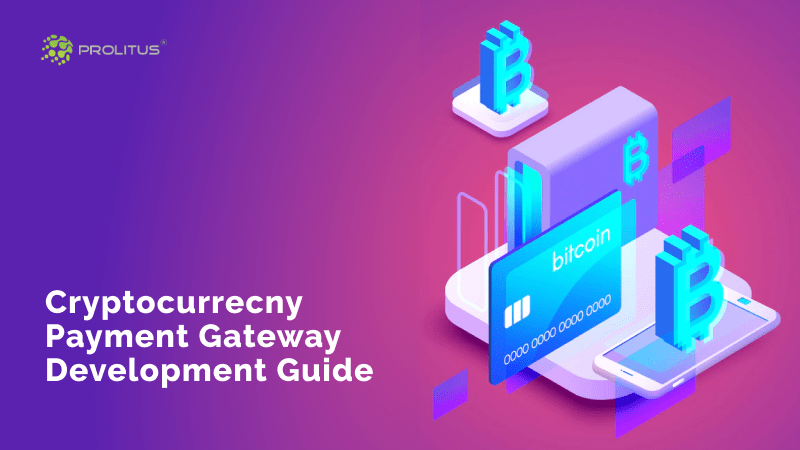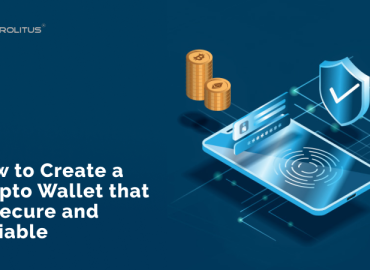Cryptocurrency payment gateways enable merchants to accept payments in cryptocurrencies such as Bitcoin or Ethereum. They work by converting the cryptocurrency into the merchant’s local currency and depositing it into the merchant’s bank account. Customers who want to purchase cryptocurrency initiate the transaction on the merchant’s website. The payment gateway then processes the transaction by converting the cryptocurrency into the merchant’s local currency and depositing it into the merchant’s bank account. This allows merchants to receive payments in cryptocurrency but still receive the funds in their local currency, avoiding any volatility issues.
How does a cryptocurrency payment gateway work?
Cryptocurrency payment gateways work by allowing merchants to accept payments in various forms of cryptocurrency. The payment gateway processes the transaction when a customer initiates a transaction on the merchant’s website and chooses to pay with cryptocurrency. This typically involves the following steps:
- The customer initiates a transaction and sends the cryptocurrency to a unique address generated by the payment gateway.
- The payment gateway receives the cryptocurrency and confirms the transaction by checking that the funds have been received and are valid.
- The payment gateway then converts the cryptocurrency into the merchant’s local currency at the current exchange rate.
- The converted funds are then deposited into the merchant’s bank account.
The payment gateway acts as an intermediary between the customer and the merchant, handling the conversion of the cryptocurrency and depositing the funds into the merchant’s account, allowing them to avoid any volatility issues. The payment gateway also provides security by ensuring the transaction is valid before processing.
The best cryptocurrency payment gateway providers typically offer the following features:
Multiple Cryptocurrency Support: The ability to accept payments in various forms of cryptocurrency, including Bitcoin, Ethereum, Litecoin, and others.
Real-time Conversion: The ability to convert cryptocurrency into the merchant’s local currency at a real-time exchange rate.
Secure Transactions: Strong security measures to protect against fraud and hacking, including encryption and secure socket layer (SSL) technology.
Low Fees: Competitive transaction fees are usually lower than traditional payment processors.
Easy Integration: The ability to easily integrate the payment gateway into the merchant’s website or online store.
Reporting and Analytics: Detailed reporting and analytics to help merchants track and monitor their sales and transactions.
Fast Payment Settlement: The ability to quickly deposit the funds into the merchant’s bank account.
Good Customer Support: Good customer support helps merchants with questions or issues.
Scalability: The ability to handle high-volume transactions and a large number of customers
Compliance: Compliance with local and international laws and regulations regarding cryptocurrency transactions.
It is essential to research and compares the features and fees of different payment gateway providers before choosing one to ensure it meets the specific needs of your business.
What are the best cryptocurrency payment gateways?
There are several cryptocurrency payment gateways available; some of the best ones include the following:
BitPay:
BitPay is one of the most popular cryptocurrency payment gateways; it supports multiple cryptocurrencies and offers low transaction fees. It also provides detailed reporting and analytics and easy integration with various e-commerce platforms. BitPay is a cryptocurrency payment gateway that enables merchants to accept payments in Bitcoin and other cryptocurrencies. It was founded in 2011 and is headquartered in Atlanta, Georgia. BitPay allows merchants to accept payments in Bitcoin and other cryptocurrencies easily and then automatically converts the cryptocurrency into the merchant’s local currency and deposits it into the merchant’s bank account.
CoinPayments:
CoinPayments is a cryptocurrency payment gateway that allows merchants to accept payments in various forms of cryptocurrency, including Bitcoin, Ethereum, Litecoin, and over 1,900 other altcoins. It was founded in 2013 and is based in Canada. CoinPayments provides a secure and easy-to-use platform for merchants to accept cryptocurrency payments, automatically convert them into their local currency, and deposit them into their bank accounts.
Coinbase Commerce:
One of the most significant cryptocurrency exchanges worldwide and the biggest bitcoin exchange in the US is Coinbase. With such a massive user base, Coinbase has the means to create incredible features that will make their consumers’ lives easier.
The business must abide by all US rules regarding currency transactions because it is based there. As a result, it is regarded as one of the most reliable exchanges, which is crucial considering that the cryptocurrency business is still primarily unregulated. In addition to being a stock exchange, Coinbase also functions as a payment gateway. Without the merchant having to request a withdrawal, it enables rapid currency conversion from Bitcoin to fiat currency. The exchange provides this service without charge for the first $1 million transactions; after that, Coinbase charges a merchant fee of 1%.
It’s a fantastic solution for companies of all sizes because payments clear to the merchant’s bank account in the typical 2–3 days. The fact that Coinbase only operates in a small number of nations worldwide is its only flaw.
GoCoin:
GoCoin is a payment platform that enables online businesses to accept Bitcoin, Litecoin, and other cryptocurrencies as a method of payment. The network is designed for use by online companies. It is a payment gateway that enables retailers to integrate cryptocurrency payments into their existing checkout process and provides tools for tracking and managing transactions. This might be advantageous for shops that accept multiple cryptocurrencies. In addition, GoCoin provides merchants with fraud protection and conversion tools, which makes it simpler for businesses to manage Bitcoin payments and accept them. GoCoin was one of the first organizations to offer payment processing using Bitcoin. Since then, the company has grown to support additional cryptocurrencies and Bitcoin.
CoinGate:
A historical cryptocurrency payment gateway called Coingate was one of the first services in the crypto infrastructure to use the Lightning Network to increase transaction volume once it was introduced in 2014. Coingate was first released in 2014. It has an easy-to-use app design that lets business owners set up and manage payments using only their mobile devices. This platform supports over forty different cryptocurrencies, such as Bitcoin, Dash, Bitcoin Cash, Ripple, Ethereum, and many others. Additionally, this tool enables the addition of cryptocurrency payment buttons that can be placed on any website and has a flat fee of 1% for all transactions.
Let Prolitus help you develop the best cryptocurrency payment gateway
Prolitus is an enterprise blockchain development company that offers services related to DeFi solutions and cryptocurrency development, such as building crypto payment gateways. Some ways in which they could help with developing a crypto payment gateway include:
- Custom development of a payment gateway that is tailored to the specific needs of a merchant or business. This could include integrating existing systems, support for multiple cryptocurrencies, and advanced features such as fraud protection and conversion tools.
- Development of a white-label payment gateway that can be rebranded and resold to other businesses.
- Consulting services to help businesses understand the technical aspects of implementing a crypto payment gateway, including security, compliance, and scalability.
- Integration with various blockchain networks such as Ethereum, Bitcoin, Litecoin, and many more.
- Maintenance and support to ensure smooth and secure operation of the payment gateway.
It’s important to note that the services offered by Prolitus can be customized per your business’s demands; we have some of the best blockchain technology experts who can help you scale your business. So connect with us today to get your doubts cleared.
Final Thought
The future of crypto payment gateways is constantly evolving, and it’s hard to predict with certainty. However, some possible trends that are likely to continue to include the following:
- They increased the adoption and integration of cryptocurrencies by merchants and payment processors. As more businesses and consumers become comfortable using cryptocurrencies, more payment gateways will likely start supporting them.
- Development of new and improved technologies, such as the Lightning Network, that make it easier and more efficient to process cryptocurrency payments.
- Greater regulatory clarity and oversight could help increase the mainstream acceptance and use of cryptocurrencies as a form of payment.
- Decentralized finance (DeFi) will also play a significant role in the future of crypto payment gateway, allowing for more privacy, security, and flexibility for merchants and customers.
It’s important to note that this is not an exhaustive list, and the market is constantly evolving. Also, the above-mentioned different payment gateway providers have different fees, supported currencies, and integration options. Therefore, it is important to research and compares the features of each one before deciding which one to use.
FAQs
How do I start a crypto payment gateway?
Starting a crypto payment gateway can be a complicated process with many technical, legal, and business issues to think about. However, here are some general steps that you can follow to start a crypto payment gateway: Conduct market research: Understand the current state of the crypto payment gateway market, including existing players, market trends, and customer needs. Develop a business plan: Determine your crypto payment gateway's target market, revenue model, and overall strategy. Obtain necessary licenses: Depending on your location, you may need to obtain licenses or register your business with relevant regulatory bodies. Build the technology: Develop or acquire the technology for your crypto payment gateway, including the necessary infrastructure for processing transactions, integrating with existing systems, and providing security and compliance features. Test and launch: Test your crypto payment gateway thoroughly before launching it to the public. Partner with payment processors and merchants: Establish partnerships with payment processors and merchants to ensure your crypto payment gateway is widely accepted. It's important to note that this is a partial list, and the process may vary depending on the location and the business's specific needs. Before you start a crypto payment gateway, it's always best to talk to legal and financial experts.
What is the best crypto payment gateway?
Several crypto payment gateway providers are considered among the best in the market. Some popular options include: BitPay: BitPay is one of the oldest and most established crypto payment gateways. It supports multiple cryptocurrencies, including Bitcoin, Bitcoin Cash, and Ethereum. It also offers a range of tools for businesses, such as invoicing, payment tracking, and fraud detection. Coinbase Commerce: Coinbase Commerce is a platform that allows merchants to accept cryptocurrency payments on their websites. It supports multiple cryptocurrencies, including Bitcoin, Ethereum, Litecoin, and others. CoinPayments: CoinPayments is a popular crypto payment gateway that supports over 1500 different cryptocurrencies. It also offers features such as multi-coin wallets, automatic conversion, and a plugin for various e-commerce platforms. GoCoin: GoCoin is a payment platform for online businesses that enables them to accept Bitcoin, Litecoin, and other cryptocurrencies as payment. OpenNode: OpenNode is a Bitcoin payment processor supporting Litecoin and other cryptocurrencies. It aims to make it easy for merchants to accept and manage crypto payments. It's important to note that the crypto payment gateway providers available in the market are constantly evolving, and the best provider for a specific business depends on the particular requirements and conditions of the company.
How much does it cost to start a payment gateway?
The cost of starting a crypto payment gateway can vary widely depending on several factors, including the scope and complexity of the project, the technology used, and the location of the business. Some of the major cost components that you may need to consider include the following: Development costs: These include the costs of building and maintaining the technology for your crypto payment gateway, including the necessary infrastructure for processing transactions, integrating with existing systems, and providing security and compliance features. Licensing and compliance costs: Depending on your location, you may need to obtain licenses or register your business with relevant regulatory bodies. These costs can vary widely depending on the specific requirements of your location. Marketing and customer acquisition costs: You may need to spend money on marketing and customer acquisition to build awareness and attract users to your crypto payment gateway. Operating costs: Once your crypto payment gateway is up and running, you will need to cover ongoing costs such as employee salaries, office expenses, and other overhead costs. It's important to note that the cost of starting a crypto payment gateway can vary widely, and it's always best to consult with an expert to get a more accurate estimate for your specific project.





